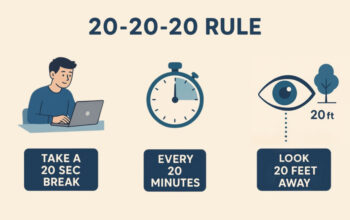
Introduction
Effective distributor and consumer management is critical for businesses aiming to build lasting relationships, streamline operations, and drive growth. This guide explores the key elements, strategies, and benefits of managing distributors and consumers efficiently. Consumer loyalty is the foundation of sustained business success. To build long-term loyalty, businesses must focus on exceeding customer expectations, delivering consistent quality, and offering rewards for repeat purchases.
Understanding Distributor and Consumer Management
Distributor and consumer management involves coordinating and optimizing relationships between businesses, their distributors, and end-users. For businesses, distributors act as intermediaries responsible for delivering products to consumers, while consumer management focuses on meeting the expectations of end-users. Together, these components ensure the seamless flow of goods, services, and information.
The Role of Distributors in the Supply Chain
Distributors play a pivotal role in bridging the gap between manufacturers and consumers. They manage logistics, inventory, and marketing efforts to ensure that products reach the market efficiently. Effective Distributor and consumer management ensures that these intermediaries operate at peak performance, maximizing profitability and market reach.
Building Strong Distributor Relationships
 Strong relationships with Distributor and consumer management are essential for business success. Communication, trust, and mutual goals form the foundation of such partnerships. Regular meetings, performance evaluations, and shared incentives can foster alignment and cooperation between businesses and their distributors.
Strong relationships with Distributor and consumer management are essential for business success. Communication, trust, and mutual goals form the foundation of such partnerships. Regular meetings, performance evaluations, and shared incentives can foster alignment and cooperation between businesses and their distributors.
Leveraging Technology for Distributor Management
Technology has revolutionized distributor management by providing tools for real-time communication, order tracking, and performance analytics. Platforms like Customer Relationship Management (CRM) software and Enterprise Resource Planning (ERP) systems streamline processes, enhance transparency, and improve decision-making.
Key Strategies for Managing Distributors
- Clear Contracts and Agreements: Define roles, responsibilities, and expectations to avoid conflicts.
- Training and Support: Provide distributors with product knowledge and sales training to improve their efficiency.
- Incentive Programs: Motivate distributors through rewards, bonuses, or exclusive rights.
- Regular Feedback: Conduct performance reviews and address concerns promptly.
- Open Communication Channels: Maintain transparent communication to address challenges effectively.
Understanding Consumer Behavior
Consumer management starts with understanding consumer behavior. Analyzing factors like preferences, purchasing habits, and market trends helps businesses align their strategies to meet consumer demands. This consumer-centric approach enhances satisfaction and loyalty. Businesses that prioritize these elements build strong brand reputations and attract repeat customers.
Importance of Customer Relationship Management
Customer Relationship Management (CRM) is central to consumer management. It involves using tools and strategies to manage interactions with customers, build trust, and deliver personalized experiences. Businesses can track consumer journeys, analyze feedback, and foster long-term loyalty through CRM systems. Delivering value to consumers goes beyond offering quality products. It includes factors like exceptional customer service, easy accessibility, competitive pricing, and innovative solutions.
Personalized Marketing Strategies
Tailored marketing strategies are a cornerstone of effective consumer management. By leveraging data analytics and segmentation, businesses can deliver personalized messages and promotions that resonate with specific consumer groups, increasing engagement and conversion rates. By actively seeking and integrating this feedback, businesses demonstrate a commitment to meeting customer needs and staying ahead in competitive markets.
Addressing Consumer Complaints
Prompt and efficient handling of complaints is crucial for maintaining trust. Businesses should establish clear channels for consumers to voice concerns and ensure swift resolutions. Proactive complaint management prevents negative reviews and fosters positive word-of-mouth. Consumer feedback is invaluable for improving products and services.
Distributor-Consumer Alignment
Aligning distributor efforts with consumer expectations ensures a smooth end-to-end supply chain. By sharing insights on consumer demands with distributors, businesses can help them tailor their strategies to maximize market impact.
The Role of Data in Management
Data plays a vital role in both distributor and consumer management. By analyzing sales trends, inventory levels, and consumer preferences, businesses can make informed decisions to optimize their operations. Advanced tools like Artificial Intelligence (AI) and Machine Learning (ML) further enhance predictive analytics and strategic planning.
Challenges in Distributor and Consumer Management
Despite its importance, managing distributors and consumers comes with challenges, including:
- Coordination Issues: Miscommunication can disrupt operations.
- Market Competition: Keeping distributors and consumers loyal amidst competition is a constant struggle.
- Adapting to Trends: Rapid changes in consumer preferences require agile strategies.
Solutions to Overcome Challenges
- Adopting Technology: Use digital tools for better coordination and tracking.
- Regular Training: Equip distributors with skills to handle changing market dynamics.
- Consumer Engagement: Keep consumers engaged through consistent communication and value-added services.
Role of Social Media in Consumer Engagement
Social media has become an indispensable tool for consumer management. Platforms like Instagram, Facebook, and Twitter allow businesses to interact directly with consumers, showcase their products, and address concerns in real time. Additionally, social media analytics provide valuable insights into consumer sentiment and preferences, enabling brands to fine-tune their strategies.
Measuring Success in Management
To evaluate the effectiveness of distributor and consumer management, businesses can track metrics like sales growth, consumer satisfaction scores, distributor retention rates, and market penetration. Regular analysis of these indicators ensures continuous improvement. The future of distributor and consumer management lies in digital transformation. Trends like AI-driven insights, automated inventory systems, and personalized consumer experiences will shape the way businesses operate.
Enhancing Collaboration Across the Ecosystem
Effective distributor and consumer management thrives on collaboration across the entire ecosystem. This includes manufacturers, distributors, retailers, and consumers. Building a well-integrated network where all stakeholders can communicate openly and share insights fosters a seamless flow of goods and information. Collaboration platforms and digital dashboards further facilitate this interconnected approach.
Sustainability in Distributor and Consumer Management
Incorporating sustainability into distributor and consumer management is becoming a growing priority for businesses. Distributors can adopt greener logistics practices, such as optimizing delivery routes and utilizing eco-friendly packaging. On the consumer side, promoting environmentally conscious products and educating customers about sustainable practices contribute to a brand’s positive image and ethical responsibility.
The Importance of Training and Development
Continuous training and development programs for distributors and sales teams ensure that they are equipped to meet market challenges. This includes education on new products, emerging consumer trends, and effective selling techniques. Businesses that invest in professional development create a knowledgeable and motivated network, resulting in better performance and customer satisfaction.
Conclusion
Effective distributor and consumer management requires a balanced approach that prioritizes both operational efficiency and relationship-building. By leveraging technology, fostering collaboration, and staying attuned to market demands, businesses can achieve sustainable growth and create lasting value for all stakeholders. This comprehensive understanding of distributor and consumer management equips businesses with the tools and strategies needed to thrive in a competitive environment.
You May Also Read: Bastinews.xyz


